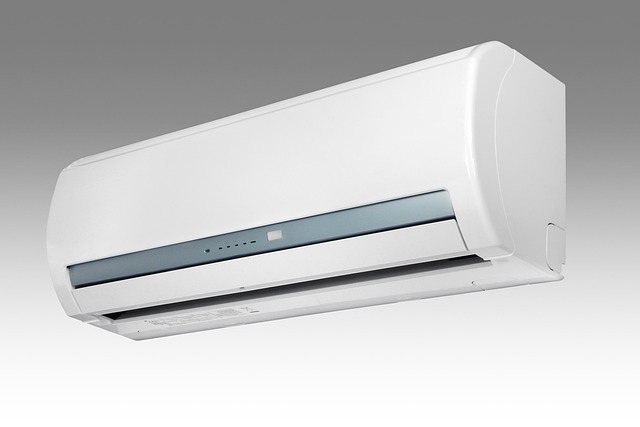Heat Pumps: Efficient Heating and Cooling Solutions for Your Home
Heat pumps are becoming increasingly popular as an energy-efficient alternative to traditional heating and cooling systems. These versatile devices can provide both warmth in winter and cool air in summer, making them a year-round solution for home comfort. In this article, we'll explore the different types of heat pumps, their benefits, and how they can help you save on energy costs while maintaining a comfortable indoor environment.

What are heat pumps and how do they work?
Heat pumps are mechanical systems that transfer heat from one area to another, either warming or cooling a space as needed. Unlike conventional heating systems that generate heat, heat pumps move existing heat from the outside air, ground, or water into your home during colder months. In warmer weather, the process is reversed, removing heat from your home and expelling it outside. This energy-efficient method of temperature control can lead to significant savings on utility bills and reduced carbon emissions.
What are the main types of heat pumps available?
There are three primary types of heat pumps:
-
Air-source heat pumps: These are the most common and versatile options, extracting heat from the outside air and transferring it indoors.
-
Geothermal heat pump systems: Also known as ground-source heat pumps, these systems use the constant temperature of the earth to heat and cool your home.
-
Ductless heat pump options: These systems, also called mini-splits, don’t require ductwork and can be installed in individual rooms or zones.
Each type has its own advantages and considerations, which we’ll explore in more detail throughout this article.
What are the benefits of using air-source heat pumps?
Air-source heat pumps are popular for their versatility and relatively easy installation. They work well in moderate climates and can be an excellent choice for both new construction and retrofitting existing homes. Some key benefits include:
-
Energy efficiency: Air-source heat pumps can be up to 300% efficient, meaning they can produce three units of heat for every unit of electricity consumed.
-
Lower operating costs: Due to their high efficiency, air-source heat pumps can significantly reduce heating and cooling costs compared to traditional systems.
-
Dual functionality: These systems provide both heating and cooling, eliminating the need for separate furnace and air conditioning units.
-
Environmental friendliness: By using electricity and ambient air heat, air-source heat pumps produce fewer greenhouse gas emissions than fossil fuel-based heating systems.
How do geothermal heat pump systems work?
Geothermal heat pump systems, also known as ground-source heat pumps, take advantage of the earth’s constant underground temperature to heat and cool your home. These systems consist of a series of pipes buried in the ground (either horizontally or vertically) and a heat exchanger inside the home.
During winter, the system circulates a fluid through the underground pipes, absorbing heat from the earth and transferring it into your home. In summer, the process is reversed, with heat from your home being absorbed and dispersed into the cooler ground.
Geothermal systems are highly efficient and can provide significant energy savings, but they typically have higher upfront installation costs due to the necessary excavation work.
What are the advantages of ductless heat pump options?
Ductless heat pumps, also known as mini-split systems, offer a flexible heating and cooling solution for homes without existing ductwork or for adding temperature control to specific areas. Some advantages of ductless systems include:
-
Zone control: Each indoor unit can be controlled independently, allowing for customized temperatures in different rooms or areas of your home.
-
Energy efficiency: Without the energy losses associated with ductwork, ductless systems can be highly efficient.
-
Easy installation: These systems require only a small hole in the wall for the refrigerant line, making them less invasive to install than traditional ducted systems.
-
Improved air quality: Ductless systems don’t circulate air throughout the entire house, potentially reducing the spread of allergens and pollutants.
-
Flexibility: Indoor units can be mounted on walls, ceilings, or floors, offering various design options to suit your home’s aesthetics.
How much do heat pump systems cost to install and operate?
The cost of installing and operating a heat pump system can vary widely depending on the type of system, your home’s size, and your location. Here’s a general overview of costs for different heat pump options:
| Heat Pump Type | Average Installation Cost | Annual Operating Cost |
|---|---|---|
| Air-Source | $4,000 - $8,000 | $500 - $1,000 |
| Geothermal | $10,000 - $30,000 | $300 - $800 |
| Ductless | $3,000 - $15,000 | $300 - $1,200 |
Prices, rates, or cost estimates mentioned in this article are based on the latest available information but may change over time. Independent research is advised before making financial decisions.
While geothermal systems have the highest upfront costs, they typically offer the lowest annual operating costs and can provide significant long-term savings. Air-source and ductless systems have lower installation costs but may have slightly higher operating expenses. However, all heat pump options generally offer energy savings compared to traditional heating and cooling systems.
In conclusion, heat pumps offer an energy-efficient and versatile solution for home heating and cooling. Whether you choose an air-source, geothermal, or ductless system, these innovative technologies can help reduce your energy consumption and utility bills while providing year-round comfort. Consider your climate, home layout, and budget when selecting the best heat pump option for your needs.




